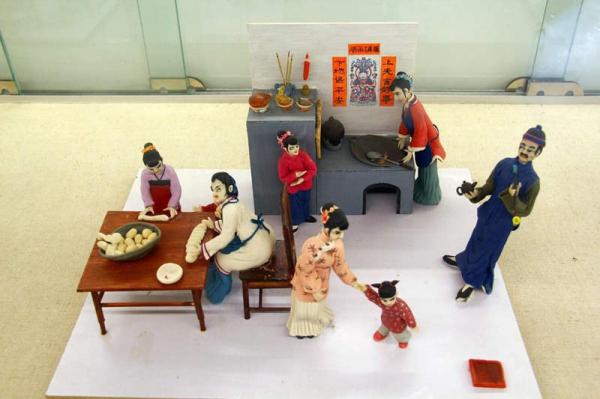15-Day Celebration of Chinese Lunar New Year
Chinese people set the Spring Festival or Lunar Chinese New Year on the first day of the first month of the lunar calendar, but generally it will not end until the fifteenth day of the first month - the 15 days of Chinese New Year. The Spring Festival is the most important folk festival that has been integrated into average Chinese life.
During the period, people will do all kinds of things for celebrations and entertainment, based on Chinese New Year traditions: worship to Chinese gods and ancestors, praying for blessings and warding off evil spirits, family and relatives reunion, wearing new clothes and enjoying festive food.
Here below we list the most significant day-by-day activities and schedule for the 15 days of Chinese New Year celebration, which can help guide the celebration of Chinese New Year 2025 - the year of the snake.
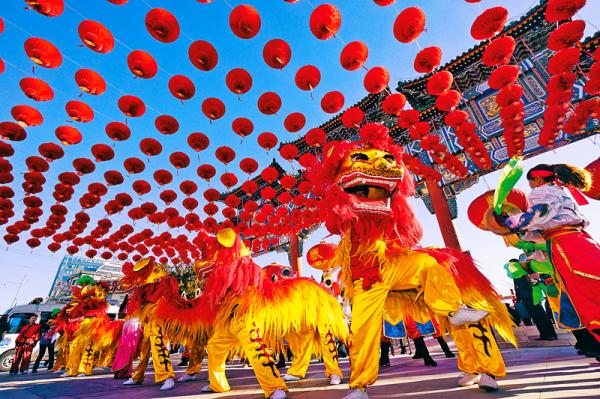
Minor Chinese New Year (Xiao Nian, 小年)
Minor New Year starts on the 23rd or 24th day of the last lunar month, which can be regarded as the prelude of the Spring Festival. In different parts of China, the actual date of Xiao Nian varies. Before the Qing dynasty, the folk tradition was to worship the Kitchen God on the 24th day. Starting from the second half of Qing dynasty, the royal family decided to hold one ceremony to worship the Heaven on the 23rd day, as well as the Kitchen God to save the cost and time.
Therefore, the folks in North China, like Beijing, Xian and Harbin, began to follow suit, celebrating the Minor New Year on the 23rd day; while in most areas of South China, like Shanghai, Guangzhou or Guilin, it still remains the same as before. Xiao Nian is the beginning of a series of the Chinese New Year celebrations in the following 20 days. There are two main activities this day: cleaning the house (sweeping dust) and worshipping the Kitchen God (offering sacrifices to the God).
Legend has it that the Kitchen God has stayed at home since last year’s New Year to protect and supervise the house; on the 23rd/24th of the twelfth lunar month, the Kitchen God will ascend to heaven to report the good or evil deeds of this family to the Heavenly Emperor. According to the report of the Kitchen God, the emperor determined and handed over the fate of good fortune and bad luck for this family in the New Year to the hands of him.
Therefore, the Kitchen God is also a critical person who can bring good luck to the family. In old days, it was customary that men do not worship the moon, and women do not worship the stove (kitchen) among the Han people, so the ceremony of bidding farewell to the Kitchen God should only be done by men.
>> Also read top 10 Legends and Stories about Chinese New Year
On the 28th day of twelfth lunar month (Nian Er Ba, 年二八)
On this day, it is time to remove the old Spring Festival couplets, Door Gods, Character “Fu” (blessing), etc. posted last year, and replace with the new ones. There is a saying in Guangdong, "On the 28th day, time to wash the filth away", which means that on the 28th day of the last lunar month, the whole family should stay at home to clean up, post spring couplets to celebrate the arrival of lunar new year. In North China, people usually post the New Year’s pictures, Spring Festival couplets, red paper-cut works on window and other decorative things.
On the 30th day of twelfth lunar month (Da Nian San Shi, 大年三十)
This is the last day of a lunar year, which is also called “Sui Chu”, meaning the old year is removed, and replaced by the new year. The Chinese New Year's Eve is called Chu Xi (the night of removing the old year). The last day of a year is important as well. During the day, traditionally people will further clean the house and make it ready to host the coming guests in the new year, some families hold a ceremony of worshipping their ancestors.
New Year's Eve is of special significance in the hearts of Chinese people. As the most important moment in a year, those who live and work in other places should go back to their parents’ home to reunite with the whole family, bid farewell to the old year amid the sound of firecrackers, and welcome the Chinese New Year with fireworks all over the sky. On New Year’s Eve, family members usually sit together to enjoy the eve dinner - full of Chinese New Year food, such as dumpling, niangao, fish, chicken, all kinds of meat dishes, and Chinese New Year luck food. They also chat with each other about their stories in the past year after family reunion dinner, and stay up late to welcome the arrival of the lunar new year.
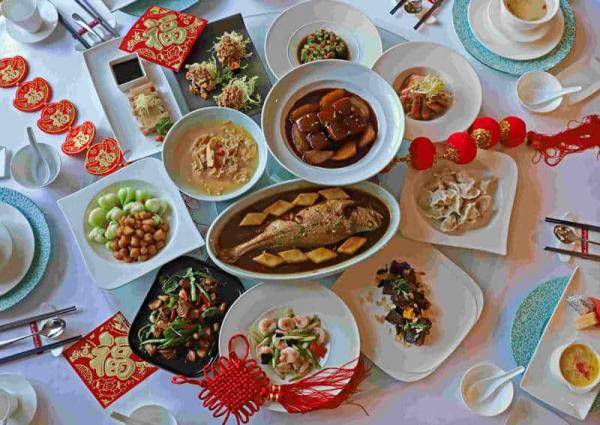
On the Lunar New Year’s day (Da Nian Chu Yi, 大年初一)
Traditionally at the moment when the Chinese New Year just arrives, countless firecrackers and fireworks will be set off. Due to the control of air pollution, this is not allowed in urban areas by many city authorities. In the vast countryside, we can still see the spectacles. Family members begin to send New Year’s greetings to each other. Seniors would give the children the red envelope money in hope of blessing and good luck to them. From this day, the Spring Festival starts indeed.
On the morning of the Spring Festival, firecrackers should be set off first, which is called "Door Opening Firecrackers" to bid farewell to the old and welcome the new. Then the ground turns red with firecracker scraps, and it is called "Man Tang Hong", meaning full house in red, which is good auspiciousness. In the morning, traditionally Chinese families burn incense to pray to the Heaven, the Earth and ancestors, as well as the god of the year. Then younger generations greet the seniors one by one, and then greet each other among relatives in the same clan.
On the first day of the Chinese New Year, usually people all get up early, put on the beautiful new clothes, and go out neatly. Some people may pay a visit to temples to pray for a smooth and safe year. According to "Zhan Shu" – Book of Divination, the day is also called "Rooster Day".
On the second day of Chinese New Year (Da Nian Chu Er, 大年初二)
The day is also named as “Day of Starting a Year”. In the morning, people hold a ceremony of worshipping the gods of Heaven and Earth at home, then set off firecrackers and have the "Start of the New Year" meal, which includes the ingredients like Fat-choy (hair weed), lettuce, fish, etc., which are all believed to have the auspicious names to bring money and luck. On the day the married daughter should return to her parents’ home with her husband and children, so it is commonly known as "Welcoming Son-in-law Day". It is required for the daughters to bring some gifts and red packets to give the kids of her parents’ side, and have lunch there. According to "Zhan Shu", the second day of the first lunar month is "Dog Day".
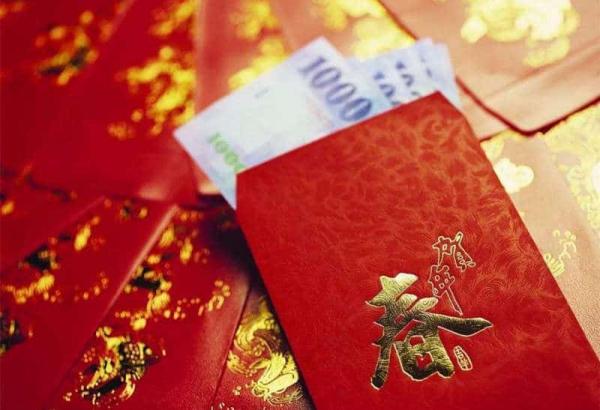
On the third day of the Lunar New Year (Da Nian Chu San, 大年初三)
The third day of Chinese Lunar New Year is also called “Red Dog Day”, which is homophonic as "Chi Kou". He is the Heavenly Emperor of the South, bad tempered. During the day, traditionally it is recommended to stay at home and worship the gods and ancestors. Legend has it that on the day it is easy to quarrel with others if someone insists going out. The day is known as “Pig Day” according to the Book of Divination.According to Chinese folklore, the night of the day is the time when the rats marry off their daughters, so most people turn off the lights to sleep early to avoid disturbing the rats. Some of them even sprinkle a few crumbs of rice and breads on the corners of the house for the rats to eat, so that they can share the year's harvest with the rats under the same roof.
On the fourth day of Chinese New Year (Zheng Yue Chu Si, 正月初四)
This is the important day of offering sacrifices to the God of Wealth. In the Book of Divination, the Goddess Nuwa created sheep on the day, hence, the name "Sheep Day". On this day, people cannot kill sheep. If the weather is good, it means that sheep will be well bred in the year, and the households of raising sheep will have a good harvest.
The day is also the date of welcoming the Kitchen God back home after his journey to the Heaven. On the fourth day of the Lunar New Year, the whole family eats out “Zhe Luo” together, which is a hodgepodge of dishes left in the past few days. People also tidy up the New Year snacks and gifts; clean up the room, and collect the garbage in one place.
On the fifth day of Chinese New Year (Zheng Yue Chu Wu, 正月初五)
The day is known as the Po Wu Festival (Breaking Five Festival). It is one of the traditional Chinese festivals with a long history. There are many taboos on this day in ancient times, such as having to eat dumplings (North China), not using raw rice for cooking, and not allowing women to go out, etc. After this day, Chinese people believe that many of the taboos during the Spring Festival can be broken (ignored).
According to the legend, it is the birthday of the God of Wealth. Therefore, in the early morning, Chinese people set off firecrackers to welcome the Gods of Wealth of five directions to enter the house and bless the family with a good fortune in the New Year. At the same time, we must drive away the "poverty" and clean the house, so there is a saying of "sending the poverty out of the door". Legend has it that the fifth day of the first lunar month is the "Ox Day".
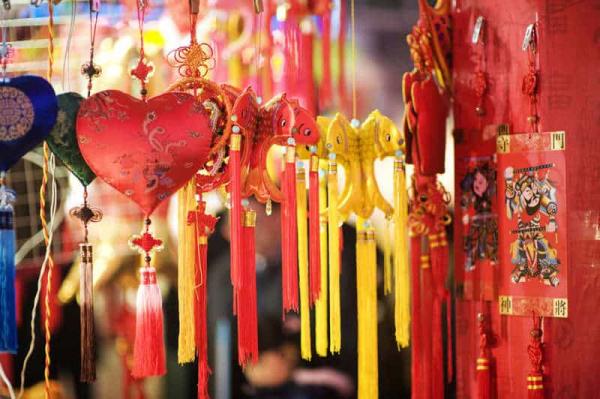
On the sixth day of Chinese New Year (Zheng Yue Chu Liu, 正月初六)
The sixth day of the first lunar month is the "Horse Day". On this day, every household must throw out all the garbage accumulated during the festival. This is called “driving the poor ghost away”. The day is also the business opening day, and shops and restaurants are officially opened for business, and firecrackers are to be set off, the noisier the better.
On the seventh day of Chinese New Year (Zheng Yue Chu Qi, 正月初七)
The seventh day is called “Mankind’s Day”. Chinese legend says mankind was created by the Goddess Nuwa on the day. People usually do not go out to meet others. According to the records of the Han Dynasty (202BC-220AD), people began to have the customs of Mankind’s Day at that time, and more attention has been paid to the celebration of the date after the Wei and Jin Dynasties (220-420AD). In ancient times, people wear a kind of headgear called "Ren Sheng" as decoration during the day.
On the eighth day of Chinese New Year (Zheng Yue Chu Ba, 正月初八)
The day is the birthday of millet, the Chinese traditional stable food of North China in ancient time. If the weather is clear on this day, it will herald a good harvest this year, and if it is overcast or raining, it could be a bit pessimistic. During the day, the farmers worship the tablets with the names of grains written on them, and do not eat cooked grains, which means the respect to the grains and cherishing food.
Traditionally visiting relatives and friends has mostly been completed before the day. Then the folks can participate in some community activities and enjoy some traditional Chinese dances: going on parade to entertaining the Gods, lion dances, dragon dances, walking lanterns, watching local opera, and various other cultural activities.
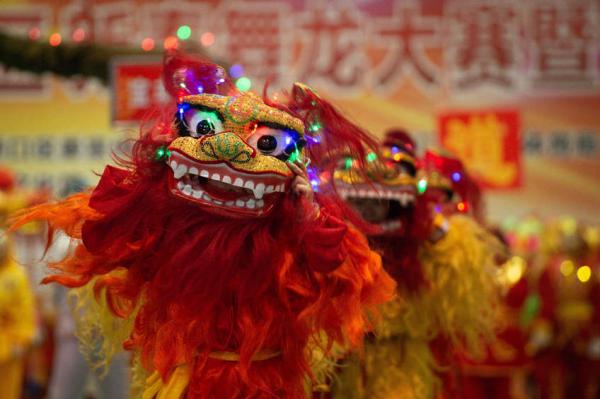
On the ninth day of Chinese New Year (Zheng Yue Chu Jiu, 正月初九)
It is the Day of Heaven. Legend has it that this day is the birthday of the Heavenly Emperor, the Jade Emperor. In Taoism, he is the highest rank god in the heavens ruling all the gods, immortals and spirits in the world (Heaven, Earth and Underworld). During the day, women prepare incense, candles, and sacrifices, and place them in the open area like patio or courtyard to worship the heaven and pray for blessings from the Heavenly Emperor. In Fujian and Taiwan provinces, the local people have a big ceremony at home and temples to show respect to the Jade Emperor.
On the tenth day of Chinese New Year (Zheng Yue Chu Shi, 正月初十)
The day is the birthday of the Stone God. In some regions, people celebrate the Stone Festival, one of the traditional Chinese folk festivals. During the day, it is not allowed to move stones and stone tools such as roller, mill, and stone mortar, etc, otherwise, it was believed that the Stone God will damage the crops. On this day, it is also forbidden to extract the rock from mountains and build houses with stones. Some people would burn incense to the stones and offer pancakes at noon. In other places, there is an interesting folk custom: on the night of the ninth day, a crock is frozen on a smooth stone, and on the morning of the tenth day, ten girls or young men take turns carrying the crock and running. If the stone does not fall to the ground, it indicates a good harvest in the new year; if the stone falls, it indicates a bad omen.
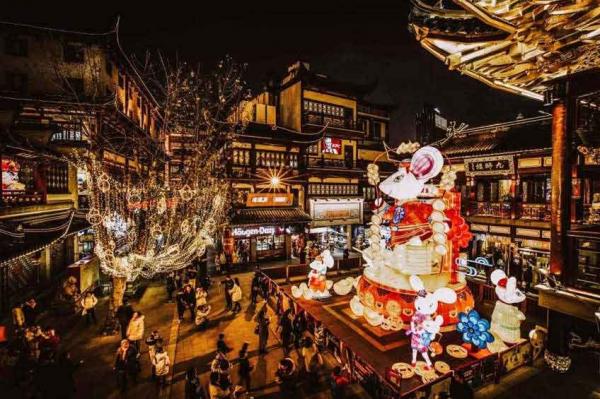
On the eleventh day of Chinese New Year (Zheng Yue Shi Yi, 正月十一)
It is the Day of Sons-in-law, when the father-in-law should treat the son-in-law a good meal at home. On the ninth day of the New Year, it was the celebration of the birthday of Heavenly Emperor. There was a lot of leftover dishes if it can’t be finished on the tenth day. Then in ancient time, the left delicacies could be used to serve the son-in-law and daughter on the eleventh day. This is really interesting!
On the twelfth day of Chinese New Year (Zheng Yue Shi Er, 正月十二)
On the day, Chinese people begin to set up a lantern shed and make lanterns at home for the preparation of Lantern Festival.
On the thirteenth and fourteenth day of Chinese New Year (Zheng Yue Shi San & Shi Si, 正月十二)
The thirteenth day of the New Year is considered as the Birthday of Lamp. On this day, the folks have to light the lamp from the kitchen stove. During the 2 days, people can go out to see the lion dances, parades and temple fairs. Get ready for the Lantern Festival.
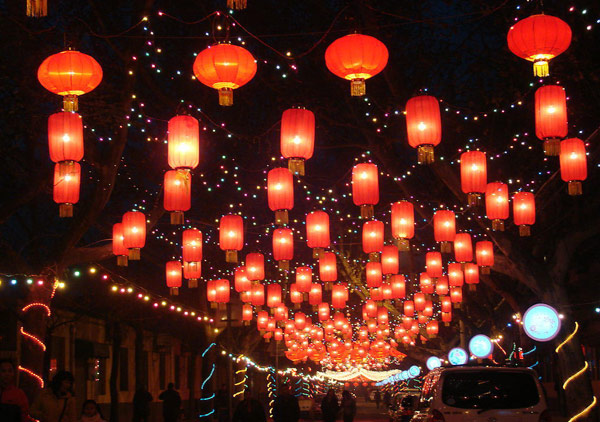
On the fifteenth day of Chinese New Year (Lantern Festival, 元宵节)
As the last day of the Spring Festival, Lantern Festival offers varieties of activities including admiring lanterns, playing dragon dance and lion dance, eating glutinous rice balls, guessing lantern riddles, setting off firecrackers and works, etc. During the Lantern Festival, it is a good chance for younger people to have social activities and get to know each other in ancient times. Therefore, the Lantern Festival can be regarded as the Chinese Valentine's Day. In June 2008, the Lantern Festival was selected into the second batch of national intangible cultural heritage.
On the whole, as the most important festival of Chinese people, the Chinese New Year involves so many traditional customs and colorful activities for celebration. Some are gradually disappearing, some just exist in a small rural area. If you want to see and experience a real traditional Chinese Spring Festival, the best choice is to pay a visit to the rural area like Yunnan and Guizhou, where the Spring Festival traditions and customs are still well preserved.
>> Recommended 14-days Chinese New Year Tour to Guizhou for a wide range of traditional cultural activities, food, and grand celebration
